INTEGRITY 20’16 – AGE OF INSECURITIES
DAY 2 – WEDNESDAY 26 OCTOBER
Wednesday’s program centres around the benefits and burdens of global prosperity. There will be conversations on; politics, power and inequality; corruption, tax avoidance and rule by thieves; democracies in a globalised world.
A series of keynotes, panel and conversations
CORRUPTION AND RULE BY THIEVES
THE FORTUNATE FEW & THE DESPERATE MANY
A COMMON HUMANITY
THE BUYING OF THE PRESIDENT
CHALLENGING DEMOCRACIES
DAY 2 TICKET PRICES
THIS EVENT HAS ENDED
Adult $150
Partners/Staff* $130
Students/Concession** $60
DAY 1 + DAY 2 PACKAGE
** Day 1 + Day 2 packages are no longer available. Tickets are still available to Day 1. Click here to go to Day 1.
Adult $300
Partners/Staff* $260
Students/Concession** $110
* Partners/Staff: Griffith University Staff/Alumni/Partners
** Concession: Tertiary & Secondary Students, Pensioners, Concession Card Holders
9.00 AM
Welcome
Paul Mazerolle
Pro Vice Chancellor, Arts, Education and Law, Griffith University. Chair, Integrity 20
Charles Sampford
Director, Institute of Ethics, Governance and Law. Co-Convenor, Integrity 20
9.10 AM
KEYNOTE
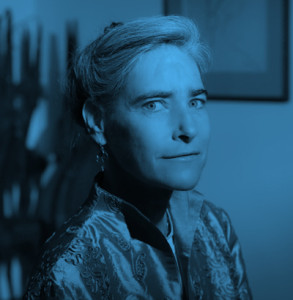
Thieves of State: Sarah Chayes
Why corruption threatens global security
The world is blowing up. Every day a new blaze seems to ignite: the bloody implosion of Iraq and Syria; the East-West standoff in Ukraine; abducted schoolgirls in northern Nigeria.
Is there some thread tying these frightening international security crises together? Sarah Chayes examines the unexpected link: corruption.
SARAH CHAYES is senior associate at the Carnegie Endowment for International Peace and award-winning former National Public Radio (NPR) correspondent. She is author of Thieves of State: Why Corruption Threatens Global Security, is an international authority on corruption and its implications...Full profile
9.30 AM
What lies beneath?
Exposing corruption, tax evasion, exploitation and ‘modern slavery’
Open markets and globalisation bring many advantages, offering the promise of prosperity to billions. However, there are systemic risks to the free movement of capital that were clearly demonstrated in the Global Financial Crisis.
In April 2016, the biggest whistleblower leak in history – The Panama Papers – exposed the astonishing hidden wealth of a vast array of corporations, criminals and members of national and global elite. This demonstrated that open markets and the free movement of capital can also facilitate corruption, kleptocracy and international tax avoidance – aided by tax haven secrecy and ‘lawfare’ by professional advisors.
Likewise, although some workers in developing countries are lifted out of poverty, slavery has reemerged with the growth of international supply chains – while the 7/11 and other scandals have demonstrated exploitation even in the richest countries.
Our panel of international journalists and experts examine some of the most significant, media-led exposés of our time. They will look at the role of investigative journalism in bringing them to light, discuss the challenges and dangers faced in the course of their work and look to the future of journalism and the media in our increasingly globalised and digitised world.
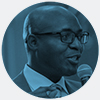 Rafael Marques de Morais (Angola)
Rafael Marques de Morais (Angola)
RAFAEL MARQUES DE MORAIS is an award-winning journalist and anti-corruption activist in Angola, working to expose corruption and abuse of power by the country’s ruling family. Despite repeated arrests and threats Rafael has continued his investigations, most recently detailing human rights abuses within Angola’s diamond companies … Full profile
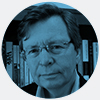 Charles Lewis (US)
Charles Lewis (US)
Bestselling author and national investigative journalist, named “one of the 30 most notable investigative reporters in the U.S. since World War I”
Full profile
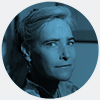 Sarah Chayes (US)
Sarah Chayes (US)
Senior associate at the Carnegie Endowment for International Peace and award-winning former National Public Radio (NPR) correspondent
Full profile
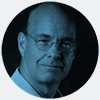 James S Henry (US)
James S Henry (US)
Investigative economist and lawyer, senior advisor, Tax Justice Network
Full profile
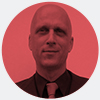 CHAIR: Luke Stegemann (Australia)
CHAIR: Luke Stegemann (Australia)
Associate Publisher, Griffith Review and author
10.45 AM
Morning tea
11.15 AM
KEYNOTE
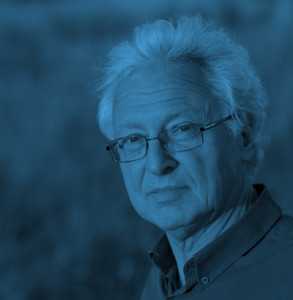
Reflections on the idea of a common humanity: Raimond Gaita
Many people appear now to fear that within twenty years or less national and international politics will be dominated by crises that are caused and inflamed by the shameful gap between the rich and the poor nations, aggravated by the effects of climate change. They fear their children and grandchildren will not be protected as they have been from the terrors suffered by most of the peoples of the earth because of impoverishment, natural disasters and the evils inflicted upon them by other human beings. In such circumstances the ideal and even the very idea of a common humanity is likely to seem to have been a foolish illusion.
RAIMOND GAITA is an award-winning author and philosopher. He is Professorial Fellow in the Melbourne Law School and The Faculty of Arts at the University of Melbourne and Professor Emeritus of Moral Philosophy at King’s College London. He is a Fellow of the Australian Academy of the Humanities. The University of Antwerp awarded Gaita the degree of Doctor Honoris Causa “for his exceptional contribution to contemporary moral philosophy and for his singular contribution the role of the intellectual in today’s academic world”…Full profile
11.40 AM
The fortunate few and the desperate many
Power, prosperity and inequality
Inequality of income and wealth is an increasingly contentious issue. With recent Oxfam data showing that the world’s richest 1 per cent own more than the other 99 per cent put together, the divide between the haves and have nots has never seemed so great.
Does it matter that some have a lot and others so little? If so, what are the drivers of inequality? And can we hope to achieve a just society with the current scale of economic inequality?
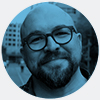 Opening Statement: Scott Stephens (Australia)
Opening Statement: Scott Stephens (Australia)
Author, philosopher, editor of ABC Religion & Ethics online and Co-Host of ABC’s The Minefield
Full profile
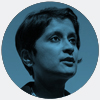 Shami Chakrabarti (UK)
Shami Chakrabarti (UK)
One of the UK’s best known campaigner, author and lawyer. … Full profile
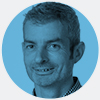 Alex Mathieson (Australia)
Alex Mathieson (Australia)
Program director at Oxfam Australia and respected humanitarian … Full profile
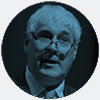 Charles Sampford (Australia)
Charles Sampford (Australia)
Research Professor in Ethics and Director of the Institute of Ethics, Governance and Law, Griffith University
12.40 PM
Lunch
1.40 PM
KEYNOTE
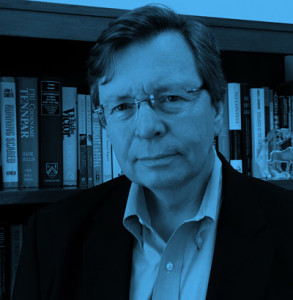
The buying of the president
“U.S. presidential elections have become garish media spectacles, a bazaar of candidates, consultants, pundits and assorted hucksters that lasts a full two years — half the length of an elected president’s term in office. Every four years, Americans endure by far the longest and most expensive election in the world — until the next one.”
CHARLES LEWIS is a bestselling author and national investigative journalist, named “one of the 30 most notable investigative reporters in the U.S. since World War I” in the 2009 Encyclopedia of Journalism.
A former ABC News and CBS News 60 Minutes producer, he founded the award-winning, nonprofit Center for Public Integrity (1989) and its International Consortium of Investigative Journalists (1997), the first global network of premier investigative reporters to develop and publish online multimedia exposés across borders.
Lewis was once described as “a watchdog in the corridors of power” by the National Journal and in 2004 was awarded PEN USA’s First Amendment award “for expanding the reach of investigative journalism, for his courage in going after a story regardless of whose toes he steps on, and for boldly exercising his freedom of speech and freedom of the press.” …Full profile
1.55 PM
Challenging democracies
For 250 years, citizens have been demanding that they get to choose who rule the nation states in which they live. By the year 2000, a majority of states comprising more than 75% of the world’s people were recognized as effective democracies.
Yet democracy faces multiple challenges, both new and old.
In some states, elections provide merely a façade of legitimacy as they are rigged
through the political control of election officials, vote counting, media reporting, electoral
boundaries.
Nation states are subject to ‘state capture’ by kleptocrats, ideologues, religious extremists,
corporate interests or those with natural ethnic or religious majorities. In some states, the
military is all too ready to take over if democratic governments do not do as they wish.
At the same time, the control that nation states can exercise over their economies is
being limited because of open markets and globalisation so that the ‘democratic space’
over which elected politicians can act is limited, leading for some to either a rejection of
democracy or of democratically elected leaders.
These and other challenges are discussed by a panel of experts from a range of new, old
and aspiring democracies.
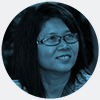 Ma Thida (Myanmar)
Ma Thida (Myanmar)
MA THIDA is a Burmese surgeon, writer, political commentator and human rights activist. In 1993 Ma Thida was sentenced to 20 years in prison, of which she served spent five and a half years, for her activism. Ever since her release she has monitored and written on events in Burma, and, with the lifting of the military regime, now heads PEN International’s Myanmar Centre…Full profile
 Rafael Marques de Morais (Angola)
Rafael Marques de Morais (Angola)
RAFAEL MARQUES DE MORAIS is an award-winning journalist and anti-corruption activist in Angola, working to expose corruption and abuse of power by the country’s ruling family. Despite repeated arrests and threats Rafael has continued his investigations, most recently detailing human rights abuses within Angola’s diamond companies … Full profile
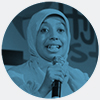 Sakdiyah Ma’ruf (Indonesia)
Sakdiyah Ma’ruf (Indonesia)
A passionate advocate for freedom and equality, Sakdiyah juggles life behind the mic as a comedian and interpreter. Sakdiyah received the Václav Havel International Prize for Creative Dissent at Oslo Freedom Forum 2015… Full profile
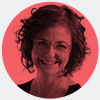 CHAIR: Madonna King (Australia)
CHAIR: Madonna King (Australia)
Award-winning journalist, author and commentator
… Full profile
